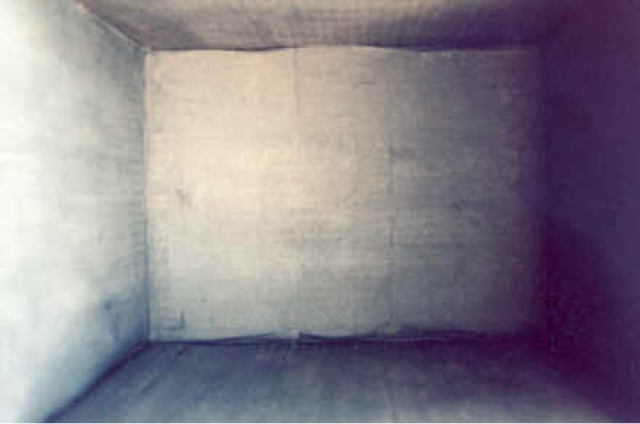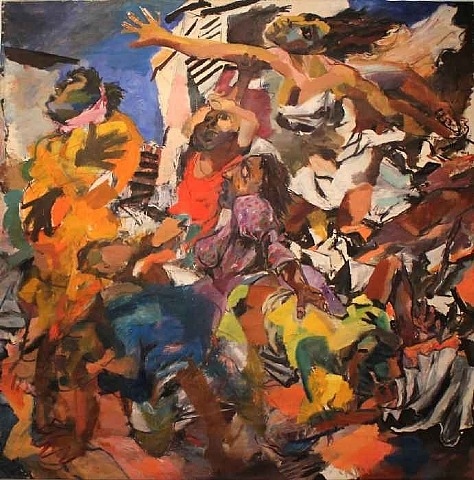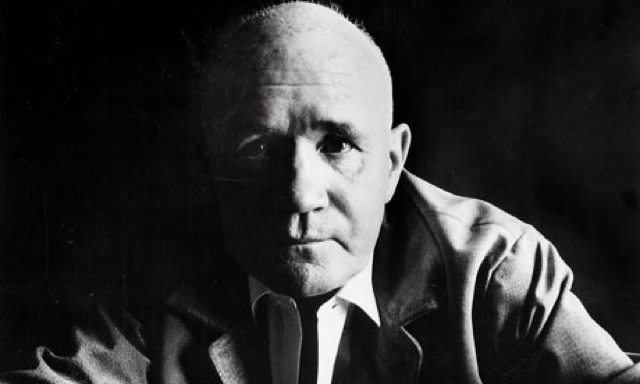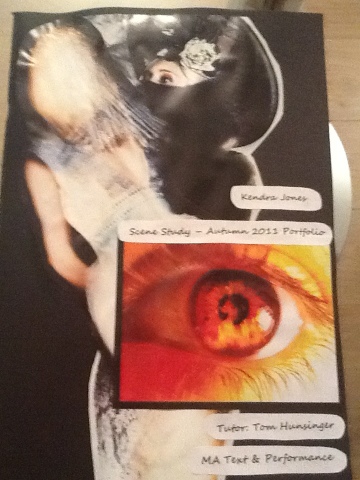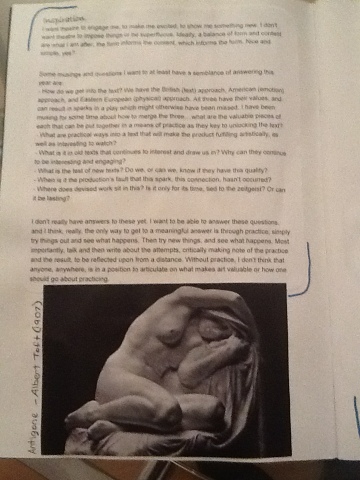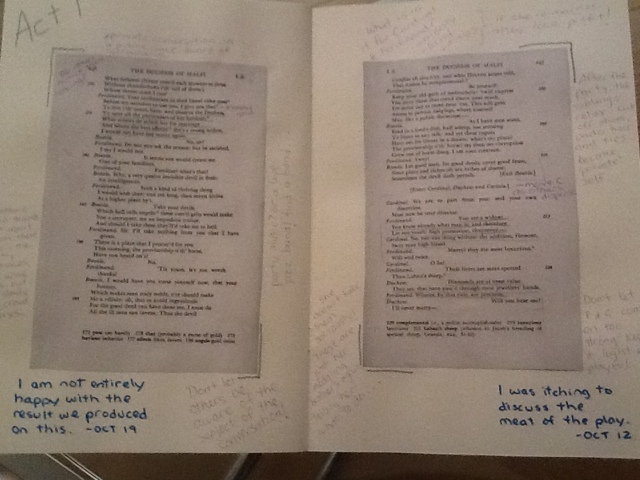I am directing for our Scene Study class on Tuesday, and have worked with 3 actors to prepare a scene from the balcony. I really wanted to bring out the changeable nature of each character's "self" in the scene, and selected a scene that gave some very juicy opportunities for this. Genet's plays always centre around a game of some kind, of taking on roles of dominance or submission in varying manifestations, and The Balcony is no different; the premise of the play is a house of illusions, where men can go have their fantasies played out. The scene I selected was not one showing us the fantasies, but instead one that might on the surface appear normal; Irma, Carmen, and Arthur, all of whom work at The Grand Balcony, are in a room discussing the workings of the business. But this scene too has its games and roles played; it is a power game, a struggle to assert leadership, ownership. We worked on the layers of roles going on - where is the character "real", where do they want others to think they are being "real", where are they taking on a role for someone else's benefit.
The other aspect I wanted to highlight came from Genet's notes to directors of the balcony - that there should be a rivalry between Irma and Carmen, that it should be questionable who really runs the brothel. Using some physical theatre techniques, I have the two actresses taking on one another's gestures and positioning, giving the implication that either of them could really be in charge. The illusion, the reflection, going back and forth as if they are mirrors facing one another; no matter how deep you get, it always seems to go deeper.
Our LABAN work fed into this as well; my group are working on physicalizing the qualities of the planets Mercury and Mars. Mars is a bit more straightforward - war, power, strength, etc. Mercury on the other hand seems to have a changeability about it; the idea of quicksilver has really struck us as an integral part of understanding Mercury. We've developed a staging of a piece of The Lady In The Moon that I think helps communicate this changeability and the impact it has on those around us.
The other aspect I wanted to highlight came from Genet's notes to directors of the balcony - that there should be a rivalry between Irma and Carmen, that it should be questionable who really runs the brothel. Using some physical theatre techniques, I have the two actresses taking on one another's gestures and positioning, giving the implication that either of them could really be in charge. The illusion, the reflection, going back and forth as if they are mirrors facing one another; no matter how deep you get, it always seems to go deeper.
Our LABAN work fed into this as well; my group are working on physicalizing the qualities of the planets Mercury and Mars. Mars is a bit more straightforward - war, power, strength, etc. Mercury on the other hand seems to have a changeability about it; the idea of quicksilver has really struck us as an integral part of understanding Mercury. We've developed a staging of a piece of The Lady In The Moon that I think helps communicate this changeability and the impact it has on those around us.
